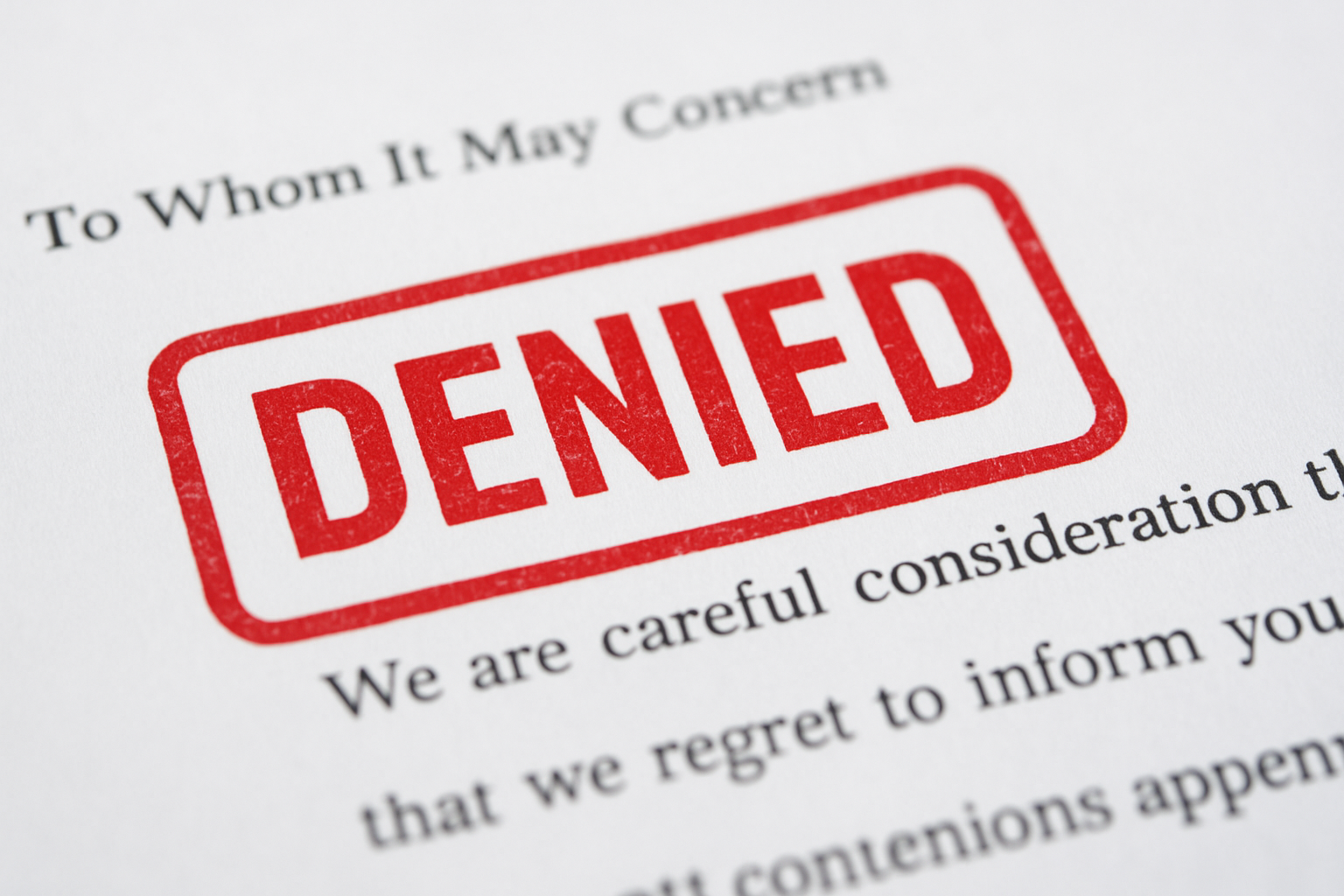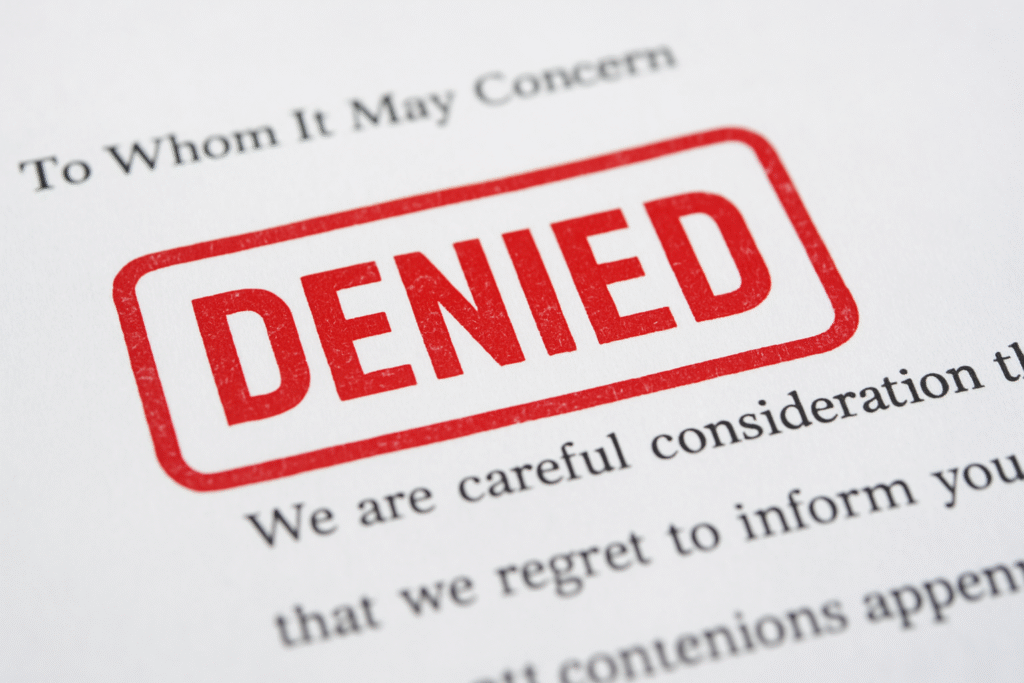
Common Reasons Roof Claims Get Denied
Insurance
Roofing
September 16,2025

A denied roof insurance claim is frustrating, especially when you’ve consistently paid your premiums. But a denial isn’t the final word. If your claim was rejected, don’t give up. You can often appeal the decision successfully with the right evidence and approach.
The first step is to understand exactly why your claim was denied. Your denial letter should explain the reason, but if it’s unclear, contact your insurer immediately and request a detailed explanation in writing.
Why Was My Roof Claim Denied?
Insurance companies are for-profit businesses, so they look for valid reasons to deny claims. While it may feel personal, denials are typically based on specific criteria. These reasons often fall into a few key categories, starting with the condition of your roof itself. For example, a claim may be denied for wear and tear, as insurance covers sudden damage, not gradual deterioration from old age. Similarly, an insurer might point to pre-existing damage, arguing the issues were there before the storm.
Other denials stem from the roof’s original construction. If an inspector finds evidence of improper installation or manufacturing defects in the materials, the insurer will likely argue that the fault lies with the contractor or manufacturer, not your policy. Finally, simple procedural mistakes can sink a claim. This includes insufficient documentation like a lack of photos or reports, missing the filing deadline, or discovering the damage was caused by an event specifically listed in your policy’s exclusions.
While these reasons are common, they are not insurmountable. Knowing which one applies to you is the key to forming a successful appeal.
What Should I Do After a Claim Denial?

Receiving a denial letter can be overwhelming, but you have options. Following these steps will set you on the path to overturning your denial.
First, review your denial letter and policy carefully. Pinpoint the specific reason given for the denial, then cross-reference it with your insurance policy to see if their reasoning aligns with your coverage.
Next, it’s time to gather your own evidence. To build a strong case, start by getting a detailed inspection report from a licensed roofing contractor. This professional assessment is your foundation. Support it with your own evidence: clear photos and videos of the damage, “before” photos to show the roof’s prior condition, and weather reports from the storm date to link the damage directly to the event.
With this new evidence in hand, request a re-inspection. Politely inform your insurer that you disagree with their findings and have new documentation to support your claim. It is highly recommended to have your own contractor present during this meeting to advocate for you. If the re-inspection doesn’t change the outcome, your final step is to file a formal appeal, submitting a letter explaining why the denial was incorrect along with all of your supporting documents.
These steps are your first line of defense. But what happens if the insurance company still refuses to approve your claim? At that point, it may be time to bring in outside help.
When Should You Get Professional Help?
If your own efforts and appeals aren’t changing the outcome, you don’t have to give up. A public adjuster is a state-licensed expert who works directly for you, not the insurance company. They understand complex policy language, can perform an independent damage assessment, and will negotiate on your behalf to secure a fair settlement. In Florida, they typically work for a percentage of the final settlement.
Should even a public adjuster’s efforts fail, or if you believe the insurer is acting in bad faith, you have further recourse. You can file a formal complaint with the Florida Department of Financial Services. As a final step, you may need to consult an attorney who specializes in property insurance claims to explore legal action.
Navigating a denied claim is a difficult process. Once you’ve resolved your current situation, you’ll want to do everything possible to avoid going through it again.
How to Prevent Future Claim Denials
The best way to handle a claim denial is to prevent it from happening in the first place. Being a proactive homeowner is key. This starts with understanding your insurance policy and maintaining a detailed file of all roof repairs to avoid common roofing problems.
Get in the habit of taking photos of your roof annually to create a clear “before” record. Furthermore, scheduling regular professional inspections, especially after a major storm, can catch minor issues before they become major problems. If damage does occur, report it immediately. Prompt filing and thorough documentation are your best defense against a potential denial.
Don’t Fight Your Insurance Company Alone

A denied roof claim can be overturned. By understanding why it was denied, gathering strong evidence, and being persistent, you can successfully challenge the decision. But you don’t have to navigate this stressful process by yourself.
At Foxhaven, we specialize in helping South Florida homeowners with complex insurance claims. Our expert team provides thorough, photo-documented roof inspections that can serve as powerful evidence for your appeal. We know what insurance companies look for and can advocate on your behalf during re-inspections.
Schedule your free, no-obligation inspection today to get a trusted second opinion and take the first step toward overturning your denial.

